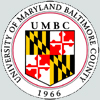| ||||||||||||||||||||||||
Tips:  Range on the Protein: Protein ID Protein Position Domain Position: 
|
|---|
Weblogos are Copyright (c) 2002 Regents of the University of California
| DMDM_info@umbc.edu | 1000 Hilltop Circle, Baltimore, MD 21250 | Department of Biological Sciences | Phone: 410-455-2258 |




 Asx tRNA synthetase (AspRS/AsnRS) class II core domain. Assignment to class II aminoacyl-tRNA synthetases (aaRS) based upon its structure and the presence of three characteristic sequence motifs in the core domain. This family includes AsnRS as well as a subgroup of AspRS. AsnRS and AspRS are homodimers, which attach either asparagine or aspartate to the 3'OH group of ribose of the appropriate tRNA. While archaea lack asnRS, they possess a non-discriminating aspRS, which can mischarge Asp-tRNA with Asn. Subsequently, a tRNA-dependent aspartate amidotransferase converts the bound aspartate to asparagine. The catalytic core domain is primarily responsible for the ATP-dependent formation of the enzyme bound aminoacyl-adenylate.
Asx tRNA synthetase (AspRS/AsnRS) class II core domain. Assignment to class II aminoacyl-tRNA synthetases (aaRS) based upon its structure and the presence of three characteristic sequence motifs in the core domain. This family includes AsnRS as well as a subgroup of AspRS. AsnRS and AspRS are homodimers, which attach either asparagine or aspartate to the 3'OH group of ribose of the appropriate tRNA. While archaea lack asnRS, they possess a non-discriminating aspRS, which can mischarge Asp-tRNA with Asn. Subsequently, a tRNA-dependent aspartate amidotransferase converts the bound aspartate to asparagine. The catalytic core domain is primarily responsible for the ATP-dependent formation of the enzyme bound aminoacyl-adenylate. No pairwise interactions are available for this conserved domain.
No pairwise interactions are available for this conserved domain.


















